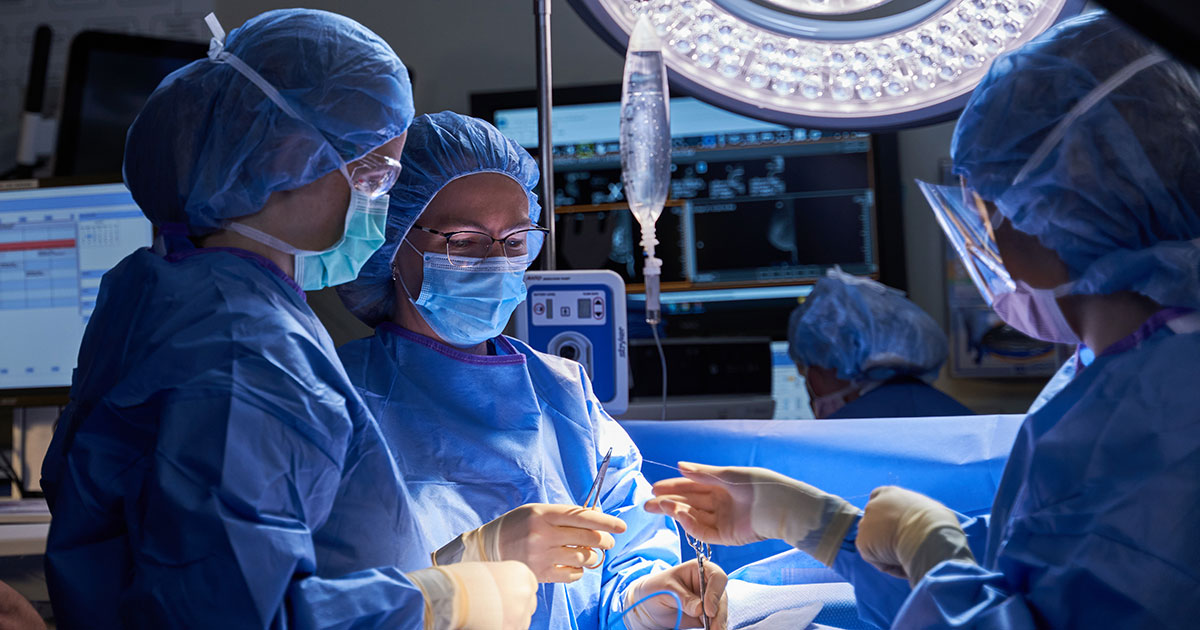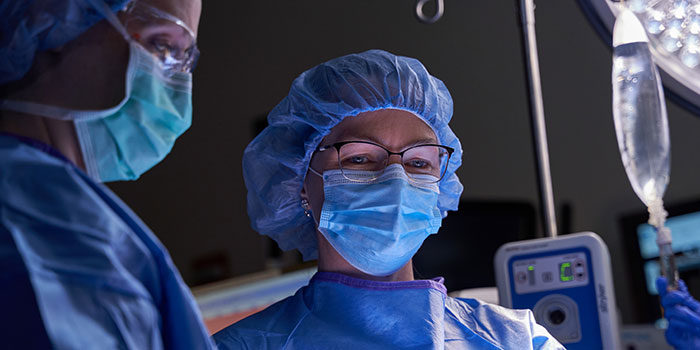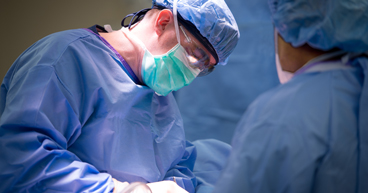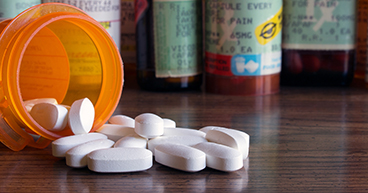
Preparing for cancer surgery may be overwhelming. You may feel nervous about what the surgery will entail, scared of the pain it may cause, and worried about how long it will take for you to recover. But knowing what to expect—including in the days and weeks afterward—may help.
First, it’s important to remember that every situation is different. Your experience with cancer surgery depends on several factors, including your type of cancer, the type of operation you’ll undergo and your overall health. “I tell my patients that whatever their functional status is, it’s going to erode significantly after surgery,” says Peter Baik, DO, FACOS, FACS, Thoracic Surgeon at Cancer Treatment Centers of America® (CTCA) in Phoenix and Chicago. “The fitter you are going into the surgery, the better you’ll be able to recover from it.”
Other factors also play a role. Challenges like anxiety and depression, high blood pressure and diabetes are linked to surgical complications, for example. That’s why it’s important to identify and manage these conditions as much as possible before surgery.
In this article, we’ll explore:
- Asking questions of your doctor about cancer surgery
- Scheduling cancer surgery
- Preparing for cancer surgery
- Preparing for anesthesia
- Recovering from cancer surgery
- Side effects from cancer surgery
If you've been diagnosed with cancer and would like to learn more about our treatment options at CTCA®, or if you’re interested in a second opinion about your cancer diagnosis and treatment plan, call us or chat online with a member of our team.
Asking questions of your doctor about cancer surgery
If you’re considering cancer surgery, one of the first topics you should discuss with your doctor are the side effects and potential complications—and, of course, the risks versus the benefits.
“Anytime I’m considering surgery for a patient, I tell them there are going to be risks and benefits,” Dr. Baik says. “If the benefit outweighs the risk, then I recommend the surgery. If the risk is greater than the benefit, we really have to rethink about whether we should go ahead with the surgery.”
In these cases, you and your doctor may be able to discuss possible alternatives to surgery.
You should also ask your doctor how to prepare for the procedure. If you have time, ask about pre-op (the phase before the operation, also called “pre-operative”) conditioning that includes physical activity and nutritional steps you can take that are designed to prepare the body for surgery and reduce recovery time after surgery. Also, ask you doctor about steps you can take to quit smoking. “If you quit smoking at least four weeks before surgery, the outcome is much better—and complication rates are much lower—than if you don’t quit,” Dr. Baik says.
Scheduling cancer surgery
How soon you may need to have surgery after a cancer diagnosis varies. It typically depends on your cancer type, as well as its stage and other factors.
Many cancer surgeries don’t have to take place immediately, and some actually can’t be performed right away. For example, in some cases, scheduling cancer surgery must wait until after the patient receives other treatments like chemotherapy and radiation therapy. If you’d like to (or must) wait to have your surgery, talk to your oncologist about your options. You may be able to take certain precautions to help better prepare your body for the operation.
“We do pre-op testing and sometimes stress testing to make sure patients are able to tolerate surgery,” Dr. Baik says. “We may also schedule someone for pre-op conditioning to help their bodies prepare for the surgery if there’s time. Of course, when you’re dealing with certain cancer surgeries or other emergency surgeries, that’s not always possible.”
Also, don’t be afraid to ask your oncology team questions—or for a second opinion.
Preparing for cancer surgery
Before your cancer surgery, your doctor will give you instructions on how to prepare. He or she may tell you to stop certain behaviors or activities—or to start others—because they may impact your surgery or recovery from surgery.
For example:
Smoking: If you smoke, your doctor will likely ask you to stop before surgery because tobacco may constrict blood vessels and reduce the flow of oxygen in the body. It may also slow healing and increase your risk of complications after surgery.
Weight: If you’re overweight or obese and you have enough time before surgery, your doctor may ask you to improve your diet or exercise routine to help your body prepare for the toll surgery will take and to help it prepare to recover more quickly.
Alcohol: Your doctor may ask you to stop drinking alcohol before surgery because it may interact with medicines you’re given before, during and after the operation.
Cancer surgery prep checklist
When you’re getting ready for surgery, consider the following questions:
- Have I had all options explained?
- Have I discussed the expected benefits, risks and side effects?
- Have I signed consent forms—both for treatment and to receive anesthesia, if necessary?
- Have I been given medical tests to show I am healthy enough for the procedure?
It also helps to create a checklist before undergoing surgery, bulleting out the things you should remember to bring with you to the hospital and going over it with your care team.
Some items you should consider bringing include:
- Dentures
- Glasses
- Health insurance card
- Hearing aid
- Medicine list
- Personal care items, like a toothbrush and other toiletry items
- Photo ID
Preparing for anesthesia
Cancer surgery typically involves anesthesia, which may be delivered in a variety of ways—via local, topical, regional or general application—so it’s important to understand their key differences:
Local: Local anesthesia is typically used for minor surgeries, such as a skin biopsy. To perform local anesthesia, the doctor or nurse will use a needle to deliver a numbing medicine to the area, which will help you feel little more than pressure during the procedure.
Topical: Topical anesthesia is a numbing medicine that’s rubbed or sprayed onto a bodily surface. It may be used, for example, when a scope or endotracheal tube is inserted down the throat into the lungs.
Regional: Regional anesthesia, like a nerve block, numbs a larger part of the body, but you’ll stay awake. The medication may be delivered as a single injection or continuously as an intravenous (IV) infusion.
General: General anesthesia is typically used for major operations—including many types of surgical procedures to treat cancer—so you don’t feel pain. This type of anesthesia, delivered through a mask or via an IV, causes you to lose consciousness and slows down many of the body’s functions.
Before surgery involving general anesthesia, your doctor will tell you whether you should stop taking certain medicines, such as anti-inflammatory pain medication and blood thinners that could increase your bleeding risk during surgery, whether you should follow a specific diet, and when you should stop eating and drinking beforehand.
Recovering from cancer surgery
How quickly you recover from cancer surgery depends on several factors, including the type of surgery you had and your overall health. “If you’re older and largely immobile, or have a mostly sedentary lifestyle, you’re probably not going to be walking after surgery,” Dr. Baik says.
Still, moving around after surgery is critical to the recovery process. It gets the digestive tract moving, improves circulation and helps prevent blood clots. For these reasons, your care team may have you try to walk or begin some light physical therapy exercises either the same day or the day after surgery.
Even if you’re doing well after cancer surgery, Dr. Baik recommends that you have someone nearby—preferably staying with you—for at least a week. Your caregiver may help you with eating, drinking and getting to bed and the bathroom.
Eating, drinking, urinating and having a bowel movement are critical to recovery because the digestive tract is one of the last parts of the body to recover from anesthesia drugs, which slow down intestinal function. Your care team may have you start with ice chips or clear liquids. If you have a catheter to collect urine, they’ll make sure you can pass urine on your own once they remove it. They also may measure how much urine you’re able to pass.
“One of the biggest complaints I hear from patients after surgery is that they feel constipated,” Dr. Baik says. “I’m very aggressive about heading off constipation because when you get constipated, it may make your pain worse. It may also make you not want to eat or drink, and you may get dehydrated. That’s why I’m adamant about having a plan to ward off constipation before it starts.”
Side effects from cancer surgery
Even though many surgeries today are less invasive than they were in the past, many cancer-related procedures cause side effects. Their severity often depends on the type of surgery and varies from person to person.The most common side effect from surgery is pain. Let your care team know if you’re experiencing pain so they may help decrease your discomfort—either with medicine, nerve blocks or other pain management techniques.
Common side effects of surgery include:
- Fatigue
- Nausea
- Loss of appetite
- Swelling and bruising
- Pain
- Infection at the site of surgery
- Sore throat, if you had to have an endotracheal tube placed
“We try to focus on a patient’s overall well-being,” says Chukwuemeka Obiora, MD, Surgical Oncologist at CTCA Atlanta. “Ahead of surgery I try to stress the important to balance things. Sometimes diets stress one thing over another. Fats are bad. Carbohydrates are bad. We need all those things. And we suggest patients figure out simple ways to improve their fitness. Because we find that over and over again, people who are in better condition do better after surgery.”
If you've been diagnosed with cancer and would like to learn more about our treatment options at CTCA, or if you’re interested in a second opinion about your cancer diagnosis and treatment plan, call us or chat online with a member of our team.



